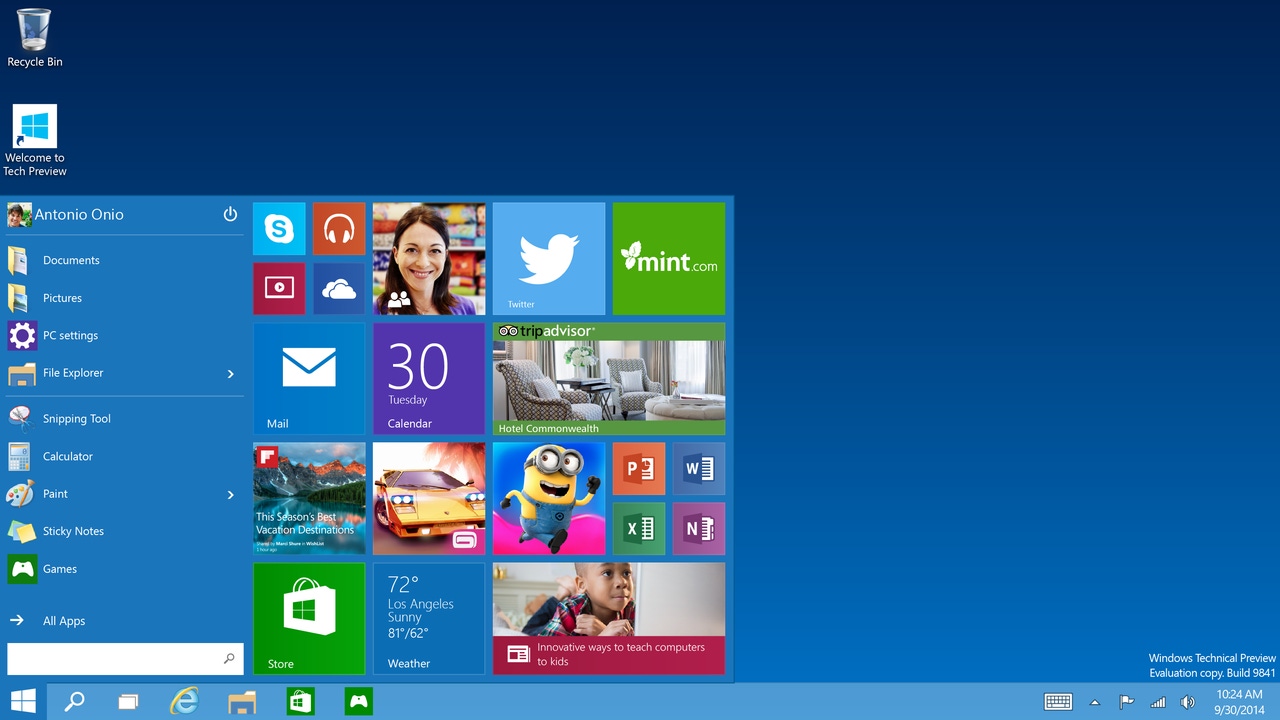Windows Server 2003 Editions Compared
Sure, Microsoft has its own table comparing the various Windows Server 2003 editions, but that version is incomplete, hard to read, and poorly organized, especially if you're interested in the features that are specific to the 64-bit editions of this product family. So here is my own comparative table, which I think you'll find to be much more readable.
April 7, 2003

Sure, Microsoft has its own table comparing the various Windows Server 2003 editions, but that versionis incomplete, hard to read, and poorly organized, especially if you're interested in the featuresthat are specific to the 64-bit editions of this product family. So here is my own comparative table, which I think you'll find to be much more readable.
NOTE: The response to this table has been incredible! Thanks to everyone who's written in with ideas, corrections, and support. --Paul
Comparing the Windows Server 2003 Editions
Processor support
Feature | Web | Std | Ent | DC |
|---|---|---|---|---|
Compatible with 32-bit Intel x86 systems | Yes | Yes | Yes | Yes |
Compatible with 64-bit Itanium-based systems | Yes | Yes | ||
Maximum number of processors | 2 | 4 | 8 | 32 |
Hardware support | ||||
Feature | Web | Std | Ent | DC |
Maximum amount of RAM | 2 GB | 4 GB | 32 GB | 64 GB |
Hot-add memory support | Yes | Yes | ||
Non-Uniform Memory Access (NUMA) support | Yes | Yes | Yes | � Yes |
File and print server features | ||||
Feature | Web | Std | Ent | DC |
Includes Distributed File System (DFS) | Yes | Yes | Yes | Yes |
Includes Encrypting File System (EFS) | Yes | Yes | Yes | Yes |
Includes Shadow Copy Restore (Requires 2000 or XP client) | Yes | Yes | Yes | Yes |
Supports removable and remote storage | Removable only | Yes | Yes | Yes |
Includes Fax service | Yes | Yes | Yes | Yes |
Includes Services for Macintosh | Yes | Yes | Yes | Yes |
Management features | ||||
Feature | Web | Std | Ent | DC |
Includes IntelliMirror technologies | Partial | Yes | Yes | Yes |
Includes Group Policy Results | Partial | Yes | Yes | Yes |
Includes Windows Management Instrumentation (WMI) command line features | Yes | Yes | Yes | Yes |
Supports image-based remote installation | Yes | Yes | Yes | Yes |
Supports Remote Installation Services (RIS) | Yes | Yes | Yes | Yes |
Includes Windows System Resource Manager (WSRM) | Yes | Yes | Yes | Yes |
Supports WSRM administrative GUI | Yes | Yes | ||
Active Directory features | ||||
Feature | Web | Std | Ent | DC |
Can be an Active Directory member server | Yes | Yes | Yes | Yes |
Can be an Active Directory domain controller (DC) | Yes | Yes | Yes | Yes |
Metadirectory Services (MMS) support | Yes | Yes | Yes | Yes |
Security features | ||||
Feature | Web | Std | Ent | DC |
Includes Internet Connection Firewall (ICF) | Yes | Yes | Yes | |
Public Key Infrastructure (PKI), Certificate Services, and Smart Card support | Partial | Partial | Yes | Yes |
Terminal Server features | ||||
Feature | Web | Std | Ent | DC |
Includes Terminal Server | Yes | Yes | Yes | Yes |
Includes Terminal Server Session Directory | Yes | Yes | Yes | Yes |
Can be administered through Remote Desktop | Yes | Yes | Yes | Yes |
Networking features | ||||
Feature | Web | Std | Ent | DC |
Supports Virtual Private Networking (VPN) | Partial | Yes | Yes | Yes |
Maximum number of VPN clients | 1 | 1000 | Unlimited | Unlimited |
Includes Internet Authentication Service (IAS) | Yes | Yes | Yes | Yes |
Maximum number of RADIUS network access servers for IAS | 50 | Unlimited | Unlimited | Unlimited |
Maximum number of remote RADIUS groups for IAS | 2 | Unlimited | Unlimited | Unlimited |
Supports network bridging | Yes | Yes | Yes | Yes |
Includes Internet Connection Sharing (ICS) | Yes | Yes | Yes | |
Supports IPv6 | Yes | Yes | Yes | Yes |
Clustering features | ||||
Feature | Web | Std | Ent | DC |
Includes Network Load Balancing (NLB) | Yes | Yes | Yes | Yes |
Includes Cluster Service | Yes | Yes | Yes | Yes |
Maximum number of cluster nodes | 8 | 8 | 8 | 8 |
Application Services features | ||||
Feature | Web | Std | Ent | DC |
Includes .NET Framework | Yes | Yes | Yes | Yes |
Includes Internet Information Services (IIS) 6.0 | Yes | Yes | Yes | Yes |
IIS is installed by default | Yes | |||
Includes ASP .NET | Yes | Yes | Yes | Yes |
Includes Enterprise UDDI Services | Yes | Yes | Yes | Yes |
Multimedia features | ||||
Feature | Web | Std | Ent | DC |
I'm interested in ensuring that this table remains the definitive guide to the differentversions of Windows Server 2003. Please email me with any additions, comments, or corrections. Thanks!
Read more about:
MicrosoftAbout the Author
You May Also Like






.jpg?width=700&auto=webp&quality=80&disable=upscale)
